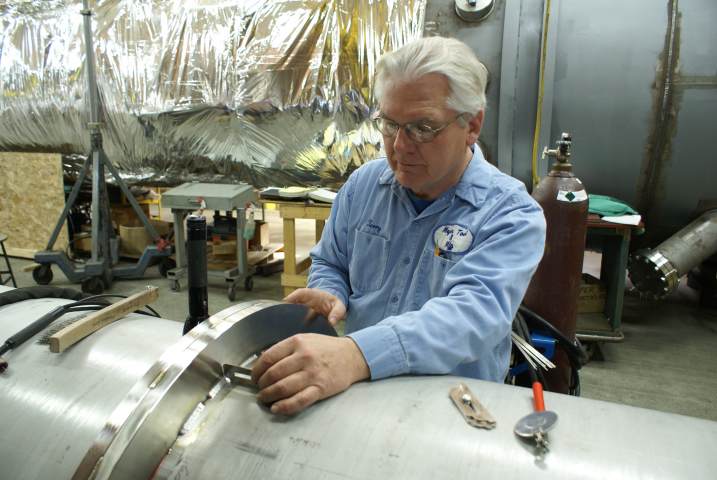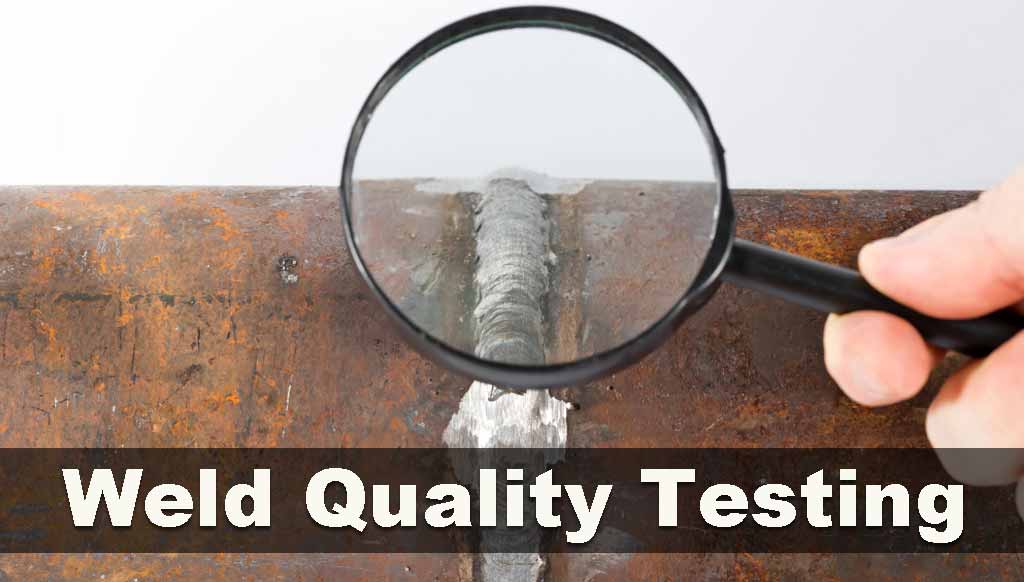The Effect of Extensive Welding Evaluation on Sector Specifications: Supporting Security, Integrity, and Compliance Throughout Different Markets
The function of strenuous welding assessment is significantly acknowledged as an important part in boosting sector standards, where safety and security, integrity, and conformity take precedence throughout varied fields. What improvements might we anticipate in welding methods as the need for high quality and security magnifies?
Significance of Welding Evaluations
Recognizing the vital duty of welding evaluations in keeping top quality and safety and security requirements, sector specialists prioritize these examinations to make certain structural integrity. Welding evaluations offer as an essential checkpoint in the manufacture procedure, recognizing issues that could endanger the durability and security of bonded frameworks. By systematically evaluating welds, assessors can spot problems such as incomplete infiltration, porosity, and cracks, which may not show up to the naked eye.
The significance of these assessments expands past plain conformity; they are essential for securing lives and safeguarding investments. In essential industries such as production, construction, and aerospace, a single defective weld can result in devastating failings, resulting in both monetary loss and human casualties. For that reason, executing strenuous inspection procedures alleviates these risks and enhances overall task dependability.
Moreover, constant welding examinations foster a society of top quality throughout companies, motivating welders to stick to finest techniques and preserve high standards in their work. This dedication to high quality not just boosts functional efficiency however additionally strengthens the credibility of business within their respective markets. Therefore, welding inspections are crucial in advertising safety, integrity, and conformity throughout numerous sectors.
Key Sector Requirements and Regulations
The framework of welding assessments is underpinned by a robust collection of industry standards and laws that regulate methods across different fields. Trick institutions, such as the American Welding Culture (AWS) and the International Organization for Standardization (ISO), establish standards that guarantee quality and safety and security in welding procedures. For circumstances, AWS D1.1 lays out essential needs for welding steel frameworks, while ISO 3834 defines top quality needs for combination welding.
Along with these specific criteria, market guidelines like the American National Requirement Institute (ANSI) and Occupational Safety and Health And Wellness Administration (OSHA) requireds even more improve conformity by setting safety methods and operational best methods. These regulations are crucial in markets such as production, aerospace, and construction, where welding integrity is paramount.
In addition, sector-specific standards, such as those from the American Society of Mechanical Designers (ASME) for stress vessels, give additional layers of analysis to guarantee that welds satisfy strict security and efficiency requirements. Adherence to these criteria not just facilitates regulative compliance however also promotes a culture of top quality and integrity throughout the welding sector, eventually protecting public welfare and boosting functional performance.

Benefits of Compliance and Reliability
Constantly adhering to market requirements and regulations in welding examinations yields substantial advantages, boosting total integrity and performance. The primary benefit is the guarantee of high quality in bonded joints, which directly contributes to the security of structures and equipment. Compliance with well-known standards minimizes the threat of failure and catastrophic incidents, thereby shielding both human life and important assets.
Additionally, organizations that focus on rigorous welding inspections cultivate a culture of accountability and professionalism. This dedication not just bolsters the track record of the firm yet likewise infuses confidence in clients and stakeholders regarding the honesty of services and products. Trusted welding processes lead to reduced costs associated with rework, repair services, and possible legal responsibilities originating from substandard handiwork.
Furthermore, maintaining conformity with market standards facilitates smoother regulative communications, as companies can easily show adherence to necessary protocols (Welding Inspection Gilbert Arizona). This proactive approach can result in advantageous partnerships and possibilities within the sector, in addition to access to brand-new markets
Difficulties in Welding Assessment
Navigating the intricacies of welding evaluation provides a myriad of difficulties that can hinder conformity with sector criteria. The absence of standardized training for inspectors can result in different interpretations of examination criteria, which may endanger security and integrity.
An additional challenge exists in the availability of advanced assessment devices - Welding Inspection Gilbert Arizona. While modern technologies such as ultrasonic testing and radiography can boost detection capacities, their application may be limited by expense or schedule, specifically in smaller procedures. This disparity can lead to a dependence on much less efficient examination techniques, enhancing the threat of unseen flaws
In addition, the hectic nature of contemporary production commonly stress inspectors to focus on speed over thoroughness, possibly neglecting critical problems. Lastly, governing conformity can be intimidating due to the developing nature of sector criteria, leaving organizations struggling to stay on top of the most up click for more to date demands. These obstacles require constant improvement in examination methods to make sure the stability of welded frameworks across various markets.
Future Trends in Welding Practices
Arising modern technologies and progressing approaches are readied to transform welding methods in the coming years. Improvements in automation, such as robot welding systems, are gaining traction, enhancing precision and efficiency while lessening human mistake. These systems will certainly not only speed up production yet also facilitate consistent high quality control, dealing with a few of the difficulties faced in manual welding.
Furthermore, the combination of artificial intelligence (AI) and artificial intelligence into welding procedures is poised to revolutionize examination and surveillance. Real-time data analytics will enable predictive upkeep, enabling proactive treatments that reduce downtime and rise security. Furthermore, boosted fact see here now (AR) and digital reality (VR) modern technologies are coming to be instrumental in training welders, giving immersive experiences that enhance skill development without the risks related to typical methods.
Sustainability is also a crucial trend, as markets look for greener methods. The adoption of environmentally friendly products and approaches, alongside energy-efficient machinery, will likely end up being basic. As sectors adapt to these adjustments, the focus will certainly change towards better conformity with security and environmental laws, making sure that welding techniques not just satisfy existing criteria yet additionally lead the way for a more secure and even more sustainable future.

Verdict
In final thought, strenuous welding inspections dramatically enhance sector requirements by guaranteeing security, integrity, and conformity throughout numerous industries. By methodically recognizing defects and sticking to developed standards, these inspections mitigate get redirected here dangers connected with structural failings. The promotion of liability amongst welders brings about better results, fostering trust within communities. As markets continue to prioritize operational stability, the relevance of thorough inspections will just increase, inevitably profiting companies and society at big.
The role of extensive welding evaluation is progressively acknowledged as an important component in boosting market standards, where compliance, reliability, and security take priority throughout diverse markets. Hence, welding examinations are indispensable in promoting safety, integrity, and compliance throughout numerous industries.
Trick institutions, such as the American Welding Culture (AWS) and the International Company for Standardization (ISO), establish standards that ensure high quality and safety in welding operations. AWS D1.1 lays out essential requirements for welding steel frameworks, while ISO 3834 defines top quality demands for fusion welding.
In verdict, rigorous welding inspections dramatically enhance sector requirements by making certain safety, integrity, and compliance throughout various sectors.